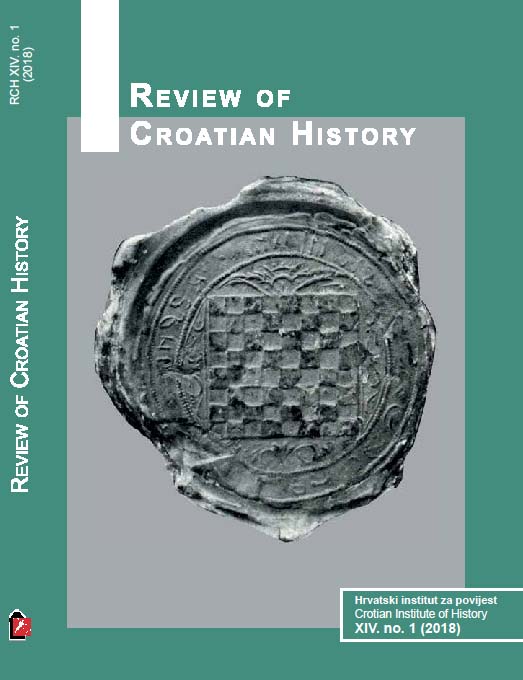ROLE OF LATIN IN A MULTINATIONAL RELIGIOUS COMMUNITY OF THE 18TH CENTURY SLAVONIA
ROLE OF LATIN IN A MULTINATIONAL RELIGIOUS COMMUNITY OF THE 18TH CENTURY SLAVONIA
Author(s): Maja Matasović, Tamara TvrtkovićSubject(s): History, Cultural history, Political history, 18th Century, History of Religion, Politics of History/Memory, Politics and Identity
Published by: Hrvatski institut za povijest
Keywords: Franciscan order; Habsburg Monarchy; Latin language; national identity; eighteenth century;
Summary/Abstract: The purpose of this paper is to explore, on the basis of the chronicle of the Franciscan monastery in Našice (Croatia), the role of Latin in creating and preserving national identity. The chronicle is an internal document, written in Latin, which gives us insight into multiplicity of nations and languages that formed the Franciscan community in the small Slavonian town in the eighteenth and the nineteenth century. Croats, Hungarians, Germans, Slovaks, etc., were coming from and serving in parishes throughout the Habsburg Monarchy, exposed to different cultural, scientific and social influences while bringing their own values with them. Latin enabled their communication, governed their daily liturgical schedule, brought them orders from higher instances, and described their history and daily life in their own words. Latin also made them a part of a much larger international group, the Catholic Church, giving them another, non-national kind of identity.
Journal: Review of Croatian History
- Issue Year: XIV/2018
- Issue No: 1
- Page Range: 123-146
- Page Count: 24
- Language: English

